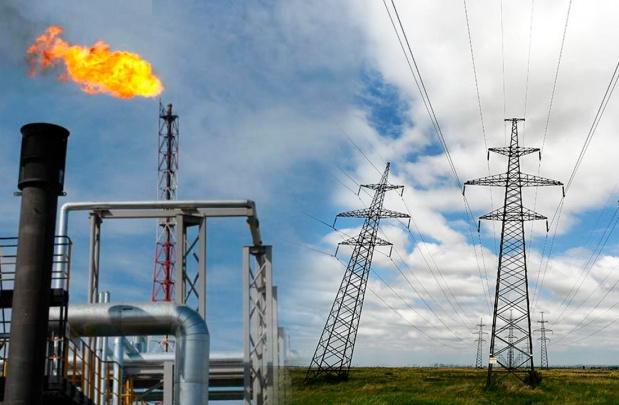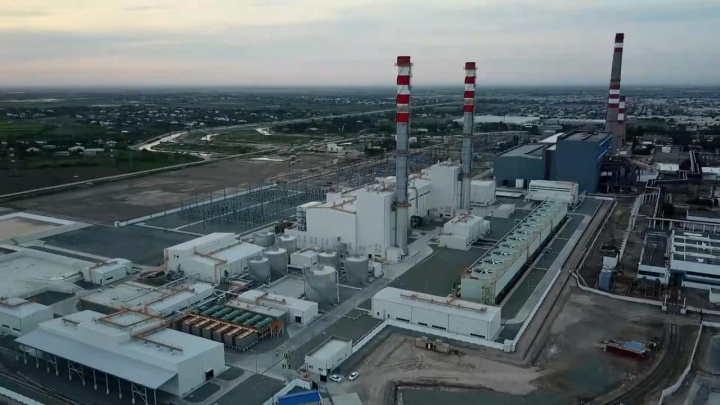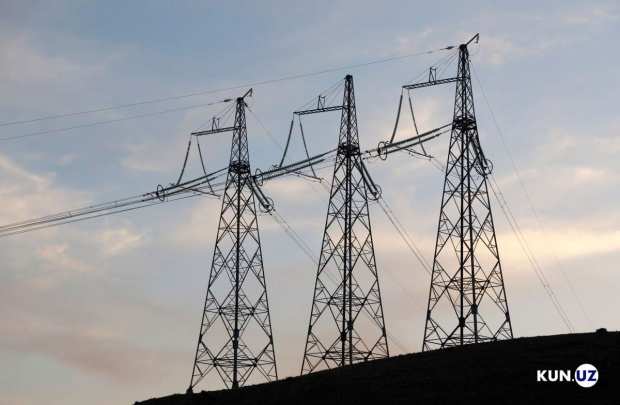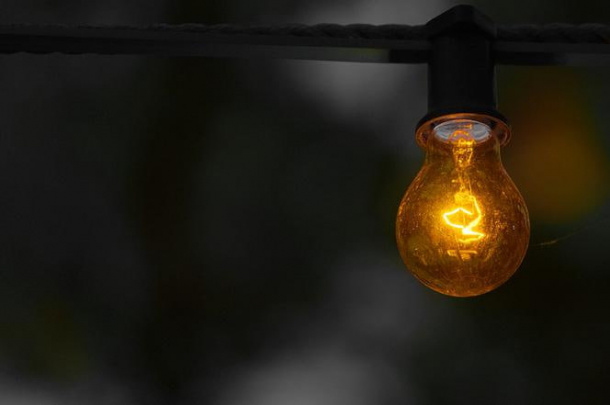Jurabek Mirzamakhmudov comments on agreements with China on energy projects
The guaranteed purchase price for photoelectric power stations built by Chinese companies in Uzbekistan will be announced at the end of negotiations with investors, the tariffs will not be higher than those determined in the last tenders, the Minister of Energy informed Kun.uz. According to him, one of the previously announced agreements was canceled due to the high price.

The ministerial delegation led by the Minister of Energy Jurabek Mirzamakhmudov returned from a visit to China. Delegates of Uzbekistan are holding negotiations with Chinese companies on the introduction of renewable energy sources.
So far, two agreements have been reported:
• A memorandum was signed with the Chinese state corporation CEEC Energy on the construction of solar photoelectric power stations with a total capacity of 2,000 MW in Kashkadarya, Bukhara and Samarkand regions.
• A cooperation agreement was signed with the consortium of companies “Huaneng Renewables Corporation” and “Poly Technologies” on the construction of solar photoelectric power stations with a total capacity of 2,000 MW in Jizzakh and Tashkent regions.
Investors in both projects have made direct investments of $2 billion ($4 billion in two projects) and announced that the first capacities will be commissioned by the end of the year, and all planned capacities by the end of 2024.
It is worth noting that the tradition of international tendering of solar and wind power plant projects, established in recent years, has not been applied to these projects. Chinese companies are directly selected. Moreover, at what price the state will buy guaranteed electricity produced by the stations they will build, it was not disclosed in official reports.
Kun.uz received answers to some questions from the Minister of Energy Jurabek Mirzamakhmudov. According to him, the reason for the non-disclosure of the guaranteed purchase tariffs is that although preliminary agreements have been reached, price negotiations are ongoing. The minister said that after the negotiations are completed and the main agreements are signed, the terms of the deal will be announced in agreement with the investors.
According to Jurabek Mirzamakhmudov, the condition is set before the investors not to increase the guaranteed purchase price from the tariff in the last tender. Based on the fact that the approved prices in the last tender (December 2022) were up to 3 cents per kWh, Kun.uz received an affirmative answer from the head of the ministry to the question whether this price limit was set in the negotiations of the same day.
“The main requirements are time, quality and the cheapest tariff. If we announce a tender, it will take 3-4 years. And we are setting a condition for launching in 1 year,” Mirzamakhmudov explained that investors are being selected without a tender.
The minister asked to note when the last three tenders for green energy, which ended in December, were launched, how long it had been since they were announced and when practical work would begin.
According to Kun.uz, tenders for commissioning a total of 500 MW of renewable power in three regions began in 2021, and its first stage (RFQ) lasted until August 31, 2021. And the final winners after three stages were determined in December 2022. Agreements on all three projects are planned to be signed in the 1st quarter of 2023, construction work will start in the 4th quarter of 2023, and the stations will be commissioned in the 4th quarter of 2024. This means that the time from the start of the tender process to the commissioning of the stations will be approximately 4 years.
“And now we have set the condition of starting the practical work on the agreed projects from this year,” Jurabek Mirzamakhmudov explained.
Kun.uz also asked the government member about the price given by the consortium of GD Power and Powerchina companies. In December, this Chinese consortium won the tender for a 150 MW project in Namangan province with a bid of 4,828 cents, but the Ministry of Energy said that the bid was considered too expensive and that measures would be taken to lower the price.
“Yes, we canceled this tender result. We are currently discussing more interesting offers,” the Minister of Energy clarified the situation.
Mirzamakhmudov also answered the question about the ongoing campaign to install solar panels in state organizations, private enterprises and households across the republic.
Responding the following questions: “Before the start of this campaign, why are measures not taken to increase the supply in the panel market, to reduce the price by applying competition? Wouldn’t it be more effective to create a clear preference for residents and businesses to switch to renewable energy, and then actively and effectively promote that preference, than the current administrative mandate and directive lending?”, the governmental official said that this is one of the main goals of the visit of the ministerial delegation to China.
“We went to China to solve these issues. Our goal is to increase competition, attract more producers and get the best offers,” the head of the Ministry of Energy said.
For information, according to the presidential decree announced on February 17, it is planned to launch renewable energy sources with a total capacity of 4,300 MW in 2023.
It is estimated that 2,100 MW of the planned 4,300 MW capacity will be contributed by large solar and wind power plants, 1,200 MW by social sector objects, buildings and structures of economic entities, and solar panels installed in apartments, and 550 MW – by small photoelectric power stations built by entrepreneurs.
By 2023, additional 5 billion kWh of electricity production and 4.8 billion cubic meters of natural gas are expected to be saved by installing renewable energy sources, switching consumers to alternative energy and introducing energy-efficient technologies.
A total of $15.4 billion will be allocated to these goals. It is assumed that $13.4 billion will be investors’ funds, $1.1 billion – loans from commercial banks, $610 million – own funds of enterprises, $150 million – funds of foreign financial organizations and $100 million – funds of the state budget.
Related News

19:54 / 03.03.2026
Gas extraction declines while fuel and electricity output surge in Uzbekistan

14:39 / 03.03.2026
Takhiatash TPP to be returned to state control

15:40 / 25.02.2026
One third of Uzbekistan’s main power grids outdated – President Mirziyoyev orders faster modernization

12:37 / 25.02.2026



